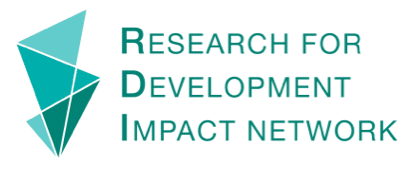Trauma is much more than the effect of a singular event. It is an experience that has enduring effects on both individuals and communities. Those who have experienced trauma, are identified as survivors. Due to its wide-spread impact and severity of these experiences, particularly in the international development context, it is important that we adopt a trauma-informed approach.
- What is Trauma?
Before anything else, we must understand exactly what the concept is. Trauma is a coping mechanism that is internalised from a threat of life. This threat can be a single event or an extended experience such as living within a warzone. In fact, every survivors’ trauma responses will be different from others as no experience or body is the same.
- Cultural Competency
It is important that you understand the political and historical context before beginning your work. Additionally, when working with survivors you should commit to understanding what their life was like before. All of this knowledge will help to understand the extent of the trauma itself. As a result this will build trust and a supportive environment for everyone involved. Cross-cultural training should be provided to assist practitioners with these skills.
- The Ethics Side
Researchers need to evaluate the ethics of their work and its possible impact. In addition, the risk of retraumatization must be identified to assess if the work is ethical. If it is deemed safe, it can be an empowering notion for the survivor to express their emotions and experiences. Also, like any other research it must be safe and confidential. For more information, visit the section on Ethics & Ethical Practice.
- Understand Trauma Triggers
Within the safe and supportive environment that you have provided, make sure your participant has autonomy throughout. This means that if they would like to take a break, skip a question or end the session early, that you do just that. As well, you should be watching for increased levels of anxiety or trauma responses and initiate breaks or early marks.
- Indigenous Communities
Indigenous communities across the globe still feel the trauma of colonisation today. This trauma is often internalised, resulting in making it even more invisible. So, it is important when working with these vulnerable communities you uphold a holistic approach. This is because for many Indigenous communities health and wellbeing are interconnected. Overall, you want these communities to heal through local frameworks to begin the process of healing.
- Secondary Trauma
Listening and writing about trauma, as well as being in a conflict filled location can also have effects on practitioners and researchers. So, it is important that you self-regulate your emotions and can identify any trauma responses. With this in mind, it is important to keep up with your self-care regimes as well.
- Checklist Resource
The Trauma-Informed Approaches (TIA) Development have constructed a checklist for these environments. It provides foundational principles, as well as practical steps to be taken. The checklist has been crafted from mental health experts and academic literature to ensure a safe practice within these vulnerable communities.
Links:
- Trauma-Informed Approaches to Development (4 min read, blogpost)
- Trauma-Informed Approaches to Development Checklist (15 min read, practical PDF document)
- On Trauma-Informed Peacebuilding & Development Assistance (3 min read, blogpost)
- Working with Torture Survivors (30 min read, PDF)
- Trauma and trauma-informed researchers (10 min read, blogpost)
- Toward A Trauma- And Violence-Informed Research Ethics Module: Considerations And Recommendations (3 hour read, PDF)
- Trauma-informed care: Culturally responsive practice working with ABoriginal and Torres Strait Islander communities (10 min read, blog post)



